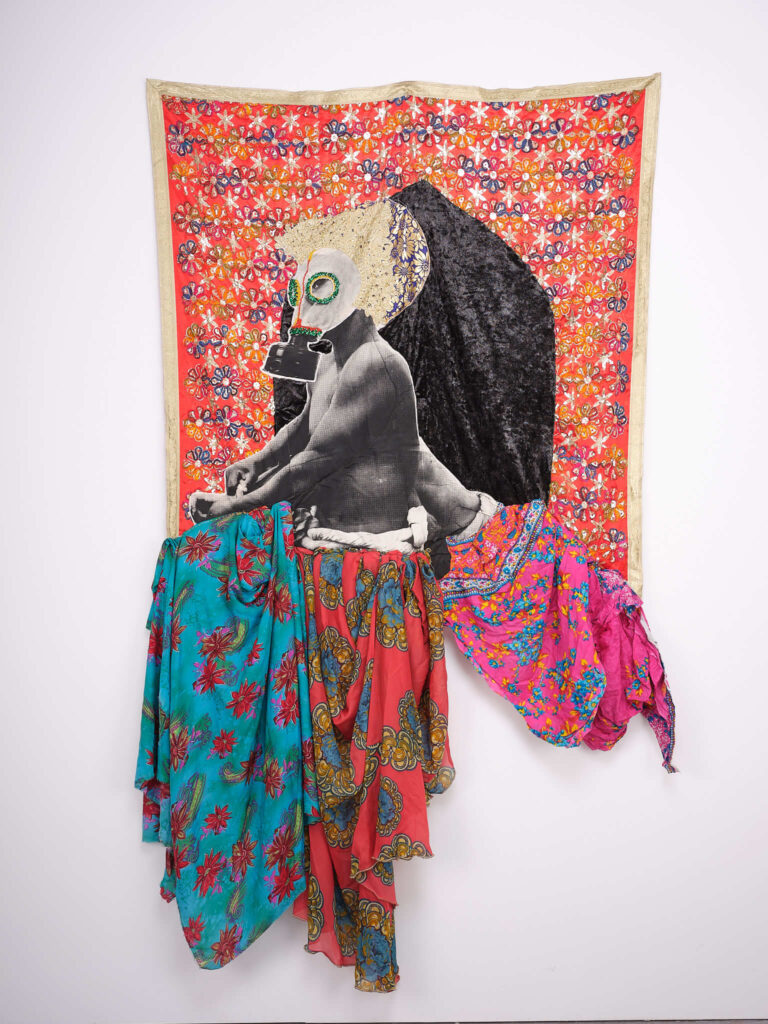
Storytellers of the Future
On a cold winter morning in Karachi, Zulfikar Ali Bhutto seats himself across his screen. In his frame, we catch glimpses of an imposing shelf to the left, a few books laying down as though to rest from bright nights of leafing and referencing. A few mementos reflect silver light to the camera. Zulfikar himself seems as dazzling and marvelous as what surrounds him, in a coral pink kurta and of the countenance of one who has inklings of what waits beyond earth. Our opening conversations with him are grounded in the ongoings of life during the pandemic – gym routines, helping siblings prepare for exams and the experience of residing with family through it all. One could hardly foretell that questions of multiverses, Noor Jahan’s voice as a radio wave in outer space, repurposing Queer Mujahideen as a term and the artist’s role in a revolution, would make for a morning’s discussion.
Zulfikar explains why his video series Tomorrow We Inherit the Earth embodies a sci-fi aesthetic. The Queer Muslim future he believes in lies in a post-apocalyptic universe. “We are constantly pummeled by war and violence from abroad and then from within our own people”, he emphasizes.
His work draws attention to surviving narratives of the Muslim world, to what remains despite erasure – “All we have is a future of rubble and survivors. We’ve seen the Baghdad museum looted, we’ve seen the Bamiyan statues go, we’ve seen so much of our history just being leveled.’’ Through his art, he draws inspiration from the role of the storyteller, the Qissa Khawaani (Urdu), the Hakawati (Arabic). To Zulfikar, storytelling is one of humanity’s most powerful saving graces.
Stories persist as legacies. Even as rubble. Even as dimmed radio waves. At this point, our morning, flanked by screens and home offices, starts to shimmer, the edges of objects blur to appear almost limitless. We discuss more elements from Zulfi’s video series, which begins with a speculative audio-visual piece. Noor Jahan’s voice emanates from satellite dishes that were formerly minarets; it travels beyond the earth’s atmosphere in the form of radio waves.
“How long will it take for Noor Jahan’s voice to go from radio Pakistan in 1974 and reach Mars?”, his work poses this question. He explains that the endurance of these stories relates to cosmological interconnectivity, even as a counternarrative to loneliness.
There is no one kind of Islam or just one type of Queer Muslim future. There are many kinds of legacies that storytellers will invoke in the future. To Zulfikar, a futurism that is inclusive is inherently queer. The movement to a queer future that honors stories is inspired by radical fighters, artists, and lovers. Zulfikar looks back at previous political struggles in the Muslim world, inspired by the plurality and beauty of human history. He mentions that God is not Rab-al-Aalam but Rab-al-Alameen, not Lord of the universe but of universes.
The past is important to Zulfikar. “This is my real repurposing of historical materials. What does a queer Muslim Mujahideen look like? How do we repurpose this term, which has been so CIA-corrupted and so Talibanized to mean something very particular?” Here is where the narratorial voice of Tomorrow We Inherit the Earth, Faluda Islam, functions as an interpreter of the past. Made of many histories and identities drawing from Zulfi’s own identity as a queer, Pakistani-Lebanese-Iranian Muslim, she is his drag persona. Her role as a post-apocalyptic revolutionary and storyteller invites listeners to reexamine the past with her. Suspended in a Barzakh, a limbo beyond time, Faluda’s zombie-like otherworldliness and her range of voices pose her as an ever-shifting being.







Leave a Reply